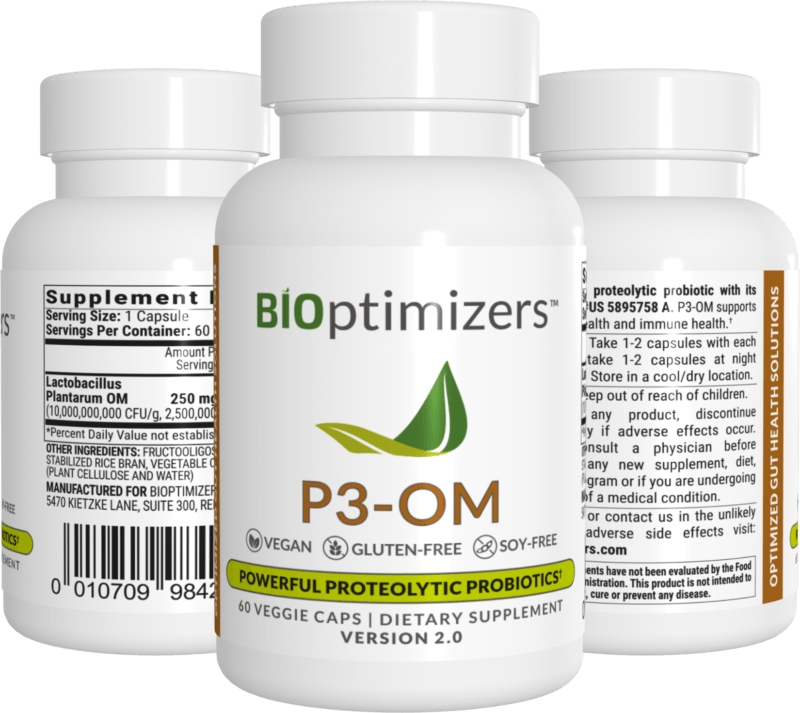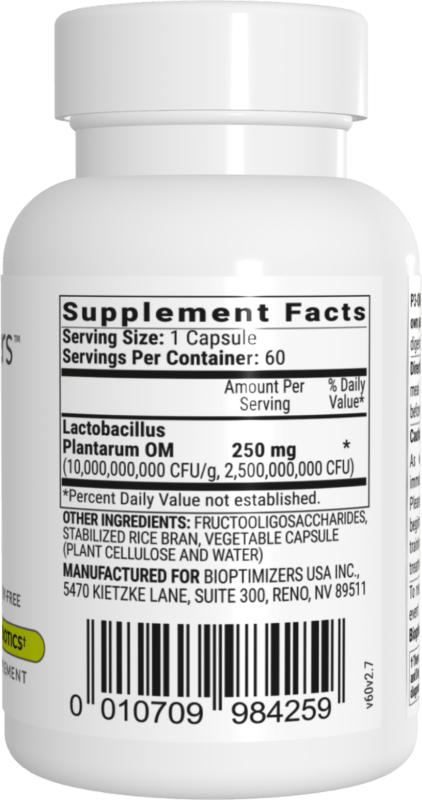 Fermented Foods: The Secret to a Healthy Gut
Fermented Foods: The Secret to a Healthy Gut
Fermented foods have been making headlines for their incredible health benefits, especially for gut health. With gut health linked to everything from immunity to mental well-being, nurturing your digestive system cannot be overstated. In this article, we’ll simplify how fermented foods can dramatically improve your gut health and introduce you to the top options to include in your diet. Let’s dive into probiotics and discover why fermented foods should be your gut’s best friend.
1. What Are Fermented Foods?
Fermented foods have gone through a natural fermentation process, where microorganisms like bacteria and yeast convert carbohydrates (such as sugars and starch) into alcohol or acids. This process not only helps in preserving the food but also increases its nutrient profile.
2. Why Gut Health Matters
Your gut, also known as the gastrointestinal tract, is home to trillions of bacteria, both good and bad. The balance of these bacteria is vital for overall health. An imbalance—where bad bacteria outnumber the good—can lead to issues like bloating, indigestion, and even more serious conditions like leaky gut syndrome and irritable bowel syndrome (IBS).
Maintaining Gut Health Impacts More Than Just Digestion. It’s Also Linked To:
- Immunity: Nearly 70% of your immune system is in your gut.
- Mental Health: The gut-brain connection is real. An unhealthy gut can lead to anxiety, depression, and brain fog.
- Weight Management: The balance of gut bacteria influences how your body stores fat and regulates metabolism.
- Inflammation: An imbalanced gut can trigger chronic inflammation, which is linked to diseases like diabetes, arthritis, and heart disease.
3. How Fermented Foods Help Your Gut

Fermented foods are rich in probiotics, which are live bacteria that benefit your digestive system. They help:
- Restore Gut Flora: Fermented foods introduce beneficial bacteria into your digestive system, which helps rebalance your gut microbiota.
- Boost Digestion: These probiotics help to break down food, making nutrients more bioavailable.
- Strengthen the Gut Lining: Certain strains of probiotics strengthen the lining of your gut, which prevents harmful substances from leaking into your bloodstream.
- Combat Bad Bacteria: Probiotics crowd out harmful bacteria and yeast, preventing overgrowth and infections.
4. Top Fermented Foods for a Healthier Gut
Kimchi
This spicy Korean staple is made from fermented cabbage, radishes, and other vegetables. Rich in lactic acid bacteria, it’s a powerhouse for gut health. The combination of fiber, vitamins, and probiotics in kimchi not only supports digestion but also boosts your immune system.
Sauerkraut
Another cabbage-based fermented food, sauerkraut is packed with beneficial probiotics and fiber. It’s known to aid digestion, reduce bloating, and improve the balance of gut bacteria. The fermentation process enhances its vitamin C content, which is great for your immune health.
Kefir

A fermented milk drink, kefir contains more probiotics than yogurt, making it a superstar for gut health. It can help with lactose digestion, even for those who are lactose intolerant and contributes to overall digestive health by reducing symptoms of IBS and promoting regular bowel movements.
Yogurt
One of the most accessible fermented foods, yogurt is made by fermenting milk with specific strains of bacteria. It’s known for supporting gut health and boosting immunity. Look for “live and active cultures” on the label to ensure the probiotic benefits.
Miso
This traditional Japanese paste is made from fermented soybeans and is rich in probiotics and essential amino acids. Miso helps improve digestion, supports immune function, and even promotes skin health by maintaining the balance of good bacteria in the gut.
Tempeh
Another fermented soybean product, tempeh is a great source of both probiotics and plant-based protein. The fermentation process makes it easier to digest than other soy products while providing gut-friendly bacteria.
Kombucha
Kombucha is a fermented tea filled with probiotics, enzymes, and antioxidants. It helps support healthy digestion, detoxifies the liver, and promotes good bacteria in the gut. Just make sure to choose a low-sugar variety to maximize its health benefits.
Natto
A lesser-known fermented food from Japan, natto is made from soybeans and boasts a high probiotic content, especially the strain Bacillus subtilis. It’s known for promoting digestion, boosting the immune system, and improving heart health due to its vitamin K2 content.
5. How Fermented Foods Improve Digestion

Fermented foods contain enzymes that break down food during digestion, making it easier for your body to absorb nutrients. For example, lactase, an enzyme in fermented dairy products like kefir and yogurt, helps break down lactose, which can otherwise cause digestive issues for those with lactose intolerance.
By introducing these beneficial bacteria and enzymes into your gut, fermented foods can:
- Reduce symptoms of bloating and gas.
- Enhance nutrient absorption.
- Promote regular bowel movements.
6. Immune System Support from the Gut
Since a large portion of your immune system resides in your gut, maintaining a healthy gut microbiota is key to boosting your immune function. The probiotics in fermented foods help stimulate the production of immune cells, which defend your body against pathogens.
Regular consumption of fermented foods has been linked to a stronger immune response, potentially lowering the risk of infections like the common cold and flu. Research also suggests that fermented foods may reduce the severity and duration of illness.
7. The Gut-Brain Connection: How Fermented Foods Affect Mental Health
Emerging research shows that your gut is often called the “second brain” due to the gut-brain axis, a communication pathway between the gut and the brain. An imbalanced gut can lead to mental health issues like anxiety and depression.
By improving the balance of gut bacteria, fermented foods may:
- Reduce anxiety and depression symptoms.
- Enhance mood and cognitive function.
- Promote better sleep quality.
Probiotics from fermented foods are thought to produce neurotransmitters like serotonin, which regulate mood, sleep, and anxiety.
8. Fermented Foods for Weight Loss

For those managing their weight, fermented foods could be a game-changing addition to their diet. Research suggests that a healthy gut microbiota plays a crucial role in how your body stores fat and uses energy.
Fermented Foods Can Help By:
- Regulating appetite: Probiotics can influence hormones that control hunger and satiety, helping you avoid overeating.
- Reducing fat storage: Some studies suggest that certain strains of probiotics may prevent fat absorption in the gut.
- Boosting metabolism: Good bacteria can help increase energy expenditure, which is key for weight loss.
9. Choosing the Right Fermented Foods: What to Look For:
Not all fermented foods are created equal. Here are a few tips to ensure you’re getting the most gut-friendly benefits:
- Look for “Live and Active Cultures”: This indicates that the product contains beneficial probiotics.
- Minimize Added Sugar: Fermented foods like yogurt and kombucha can sometimes be loaded with added sugars, which diminish the health benefits.
- Choose Organic When Possible: Organic options are typically free from harmful pesticides and preservatives.
- Go for Unpasteurized: Heat pasteurization can kill beneficial bacteria, so opt for raw or unpasteurized varieties when available.
10. How to Add More Fermented Foods to Your Diet

Incorporating fermented foods into your diet is easier than you think! Try these ideas:
- Start your day with yogurt or kefir in smoothies or bowls.
- Add sauerkraut or kimchi to sandwiches, salads, or wraps for a probiotic punch.
- Enjoy miso soup as a light starter or side dish.
- Sip on kombucha as a refreshing alternative to soda.
11. Are Fermented Foods Safe for Everyone?
📢While fermented foods offer numerous health benefits, they may not be safe for everyone. Those with compromised immune systems, such as people undergoing chemotherapy or organ transplants, should consult their doctor before introducing a lot of probiotics into their diet. Additionally, people with certain conditions like histamine intolerance may need to moderate their intake.
Conclusion: Make Fermented Foods a Gut Health Priority
Incorporating fermented foods into your daily diet is one of the simplest and most effective ways to improve your gut health. With their probiotic properties, these foods can improve digestion, boost your immune system, enhance mental health, and aid in weight management.
Ready to give your gut the love it deserves? Start by adding a few fermented foods to your meals today!
Boost Your Gut Health with P3-OM Probiotics

While naturally fermented foods are a fantastic way to introduce probiotics into your diet, sometimes you may need an extra boost—especially if you’re dealing with digestive issues or looking for more targeted gut support. This is where P3-OM Probiotics by BiOptimizers can make a big difference.
What is P3-OM?
P3-OM is a cutting-edge, highly effective probiotic supplement that supports digestive health and boosts immunity. Unlike many other probiotics, P3-OM contains a specific strain of Lactobacillus plantarum, known for its superior ability to survive the stomach’s harsh environment and deliver its benefits directly to the intestines. It is called “the Navy SEAL of probiotics” because it fights off harmful bacteria while enhancing the growth of good bacteria.
How P3-OM Enhances Gut Health:
- P3-OM Survives Stomach Acid: One of the biggest challenges with probiotics is ensuring they make it past stomach acid to reach the intestines, where they provide the most benefit. P3-OM is formulated to withstand stomach acid, making it more effective than many traditional probiotics.
- Boosts Protein Digestion: The Lactobacillus plantarum strain in P3-OM not only balances your gut microbiota but also aids in the digestion of proteins. This means better nutrient absorption and less bloating after meals.
- Fights Harmful Bacteria: P3-OM acts as a natural antimicrobial, helping to eliminate harmful pathogens and toxins that can disrupt your digestive system. This reduces the risk of infections and promotes a healthier gut environment.
- Improves Immune Function: As we know, the gut plays a crucial role in supporting the immune system. P3-OM helps increase the production of immune cells, which strengthens the body’s defense against illness.
Why Choose P3-OM?
Unlike many over-the-counter probiotic supplements, P3-OM is:
- Vegan and Gluten-Free: Suitable for those with dietary restrictions.
- Patented and Clinically Tested: Backed by research to ensure its potency and effectiveness.
- Fast-Acting: Known for providing relief from digestive issues quickly, whether you’re dealing with bloating, constipation, or indigestion.
- Shelf-Stable: No refrigeration is needed, making it convenient to take anywhere.
How to Incorporate P3-OM Into Your Routine

Adding P3-OM to your daily routine is easy. Simply take it with meals to help improve digestion and ensure your body gets the needed probiotics for optimal gut health. It’s useful if you’re on a diet that includes a lot of protein or if you’re recovering from a gut imbalance caused by antibiotics or illness.
The Bottom Line: Fermented Foods + P3-OM = Ultimate Gut Health
While fermented foods like kimchi, kefir, and sauerkraut are excellent for maintaining a healthy gut microbiome, adding a high-quality supplement like P3-OM can give your digestive system the extra support it needs. Whether you’re looking to boost digestion, balance gut flora, or enhance immunity, combining natural probiotics with a potent supplement like P3-OM ensures you’re giving your gut the best possible care.
By including BiOptimizers P3-OM in your wellness regimen, you’re taking a proactive step toward not only maintaining but also optimizing your gut health.
References :
- https://www.healthline.com/
- https://www.webmd.com/
- https://www.health.harvard.edu/
- https://health.clevelandclinic.org/
- https://www.medicalnewstoday.com/
- https://www.medicalnewstoday.com/
Learn More About Fermented Foods & Probiotics:

